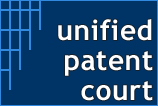Concerns that inexperienced judges will do unpredictable or crazy things at the Unified Patent Court are exaggerated, according to Bird & Bird partner Wouter Pors. Last month he gave a lecture to future UPC judges at the Budapest Training Centre as part of a week of training on the issue of infringement. He wrote this guest post for Kluwer IP Law.
By Wouter Pors
 On 5 May the Court of Justice rejected the Spanish appeals against the two Regulations relating to the Unitary Patent, which removed the last hurdle for the start of both the Unitary Patent and the Unified Patent Court. Proposals for Unitary Patent renewal fees and for Court fees have meanwhile been published. There is still a lot of practical work to do in setting up the Court, but basically it can now start as soon as a sufficient number of Member States have ratified the Agreement.
On 5 May the Court of Justice rejected the Spanish appeals against the two Regulations relating to the Unitary Patent, which removed the last hurdle for the start of both the Unitary Patent and the Unified Patent Court. Proposals for Unitary Patent renewal fees and for Court fees have meanwhile been published. There is still a lot of practical work to do in setting up the Court, but basically it can now start as soon as a sufficient number of Member States have ratified the Agreement.
This means that there are exciting times ahead. One of the major questions of course is what the UPC’s views on substantive patent law will be? In the recent past, it has often been said that it would be a good idea to opt out traditional European patents from the UPC’s jurisdiction until there would be more certainty on the case law. However, recently I sense that there is a change in the industry’s approach. The Unitary Patent and the UPC offer a one stop solution for most of Europe (certainly since Italy is now reconsidering its position on joining the Unitary Patent). If the court is reliable and takes a balanced view on validity and infringement, maybe there aren’t that many reasons to opt out. After all, a European patent has always been open to a central attack on validity through an EPO opposition anyway.
Of course, a major factor in this are the judges. What will they be like? Is there a risk that certain divisions will take incomprehensible decisions that make litigation in the UPC a gamble? What can we already say about this, since the judges have not been appointed yet?
If we focus on the legal judges, who will form the majority in any panel of the Court of First Instance, due to the casting vote of the chairman in case an additional technical judge is appointed, we may actually already have a pretty good picture.

Potential UPC candidates could submit an expression of interest until 15 November 2013. There were 360 expressions of interest to become a legal judge, of which 124 were qualified as “outstanding”. There will be a further selection process and the current plan is that 80 legal judges and 40 technical judges will be trained in 2015 (according to a presentation by Kevin Mooney at the last EPLAW Congress). This actually means that those will be the judges that will be appointed when the UPC starts.
Who are these 80 legal judges? The vast majority of them will be experienced patent judges. Most of them will combine their position as a UPC judge with being a judge on a national court. They have been handling patent cases for years and even though we do not yet know their names, we of course do know their ideas on patent law, as those are apparent from the judgments of the national courts in which they are currently active. For the divisions in the major patent jurisdictions, such as the United Kingdom, Germany, The Netherlands and France, it is clear that each UPC panel will consist of two judges from that country and one judge from the central pool, most likely a judge who is less experienced.
Therefore, it seems quite easy to assess what the approach towards substantive patent law in those divisions will be. Since the UPC is a single court, all divisions of the Court of First Instance will probably work towards a common denominator on the application of substantive law, even though there might be differences in the beginning. However, even those differences, although not known in detail, are not totally unpredictable. For instance, judges may initially follow their well-known approach as a judge in their national court of origin on such an issue as granting injunctions for standard essential patents, until they agree on a common approach or the Court of Appeal decides it, but even if the initial approaches differ, they will not contain huge surprises. We know what the various approaches currently are. Thus, the behaviour of the experienced judges and of the divisions in which they will sit is actually quite predictable, though there will probably be a trend towards harmonization.
But what about the judges who are inexperienced in patent law? Obviously, at least some judges from any Member State that participates in the Unified Patent Court should be allowed to become a UPC judge. This will inevitably lead to the appointment of some judges who have little or no experience in handling patent cases. However, as long as they are a minority, probably even on any given panel, that is not too much of a problem for the predictability of UPC case law.
All future UPC judges will have to take some training, because the UPC procedural laws are completely new. For the judges with little patent experience there is a more extensive program, which includes substantive patent law. The European Patent Academy has developed a comprehensive set of e-learning modules covering a large number of topics. In addition to that, there has been a two week training program at the UPC’s Budapest Training Centre. Validity was taught in February, infringement in April.
I enjoyed the privilege of being one of the teachers at the infringement module. This module went beyond infringement as such, since it also dealt with property issues, licences, employee inventions, remedies, mediation and my topic: Union Law (which inter alia included the Treaties, the SPC Regulations, the Rome Regulations, the Biotech Directive and the proposals for a Trade Secrets Directive). The group that attended this module consisted of 19 candidate judges from 14 Member States. They were all highly motivated and very active in discussions, which continued during the breaks. Those discussions included views on posts on the various IP blogs. If there had been fears that some new judges could do very unpredictable or crazy things, I think I can reassure the readers. Though it will of course take time to get experienced at deciding patent cases, I am quite convinced that this group of candidate judges has an honest interest to help develop the UPC in a thorough and balanced way.
My conclusion therefore is that, though we do not yet have the list of the initial 80 UPC legal judges, that doesn’t mean that the UPC will be unpredictable. 60 out of the 80 will be experienced judges whose case law we know. A minority will consist of judges who lack patent experience, but are keen to participate in the development of the UPC. I think the UPC will from its start function within the tradition of patent law in Europe and will do so in all its divisions. Of course, there are differences within that tradition and the UPC will have to find its own solutions to that, but I do not expect there to be exotic and totally unexpected rulings. In fact, this means that there is no reason to steer away from the UPC until there is a body of case law. In my view there is no specific risk in using the UPC right from the start. Actually, being involved from the beginning and presenting legal arguments in the best possible way will help the UPC to develop its body of case law and make a good start. Since the uncertainty in practice is limited, the advantage of being able to enforce a patent in 25 countries seems to outweigh the risks.
For regular updates on the UPC, subscribe to the free Kluwer IP Law Newsletter.
________________________
To make sure you do not miss out on regular updates from the Kluwer Patent Blog, please subscribe here.


